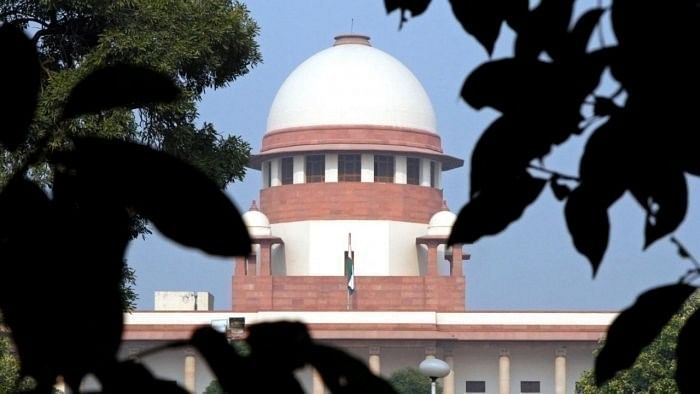
The Supreme Court of India.
Credit: PTI File Photo
New Delhi: The Supreme Court on Friday decided to examine a fresh plea to declare the freebies announced by the political parties before elections as corrupt practices.
A three-judge bench led by Chief Justice of India D Y Chandrachud issued notice to the Union government and the Election Commission on the petition filed by B Lakshmidevi from Bengaluru through advocate Balaji Srinivasan.
The court directed to tag the plea with a similar petition filed by advocate Ashwini Kumar Upadhyay.
The petitioner contended to ensure the integrity of the electoral process and the responsible use of public funds, it is imperative to establish clear and enforceable regulations that govern the content of manifestos and prohibit the practice of making unrealistic and financially burdensome promises.
"Such guidelines should be aimed at safeguarding the principles of fair and transparent elections while protecting the fiscal health of the state and the interests of the electorate," the plea said.
The petitioner sought a declaration that the promise of freebies, particularly in the form of cash, made by political parties during the run-up to Assembly or general elections, to be funded from the public exchequer post-election if their party forms the government, constituted a corrupt practice under the Representation of the People Act, 1951.
The petitioner also sought a direction to the Election Commission to take immediate and effective steps to prohibit political parties from making promises of freebies during the pre-election period.
The plea also contended the promise of freebies, particularly when targeted at specific sections of the electorate, created an unequal playing field, thereby violating the principle of equality under Article 14 of the Constitution.
Referring to Karnataka example, it claimed unregulated promise of freebies imposed a significant and unaccounted financial burden on the public exchequer. Further, there existed no mechanism to ensure the fulfilment of pre-poll promises on which votes were secured.
It also maintained that the Supreme Court's judgement in S Subramaniam Balaji's case that Section 123 of the RP Act does not apply to a political party (association of persons) and only prohibits individual candidates from making promises directly related to their election, was not the correct law.
